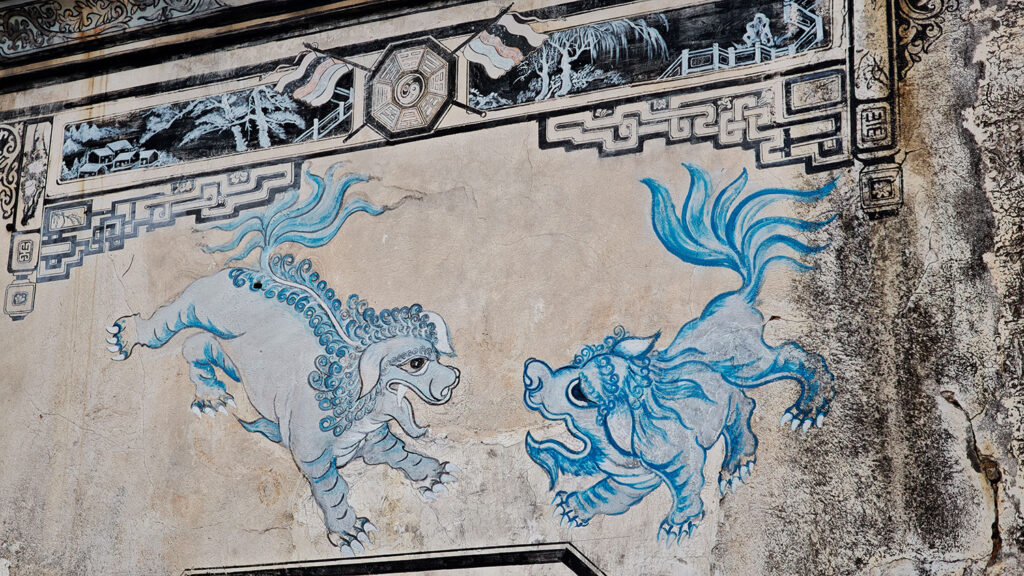I’ve now taken two months of Mandarin classes, and last week our teacher taught us the words for cat (māo) and dog (gǒu) — and as a sort of fun extracurricular, she also explained the sounds they make: “miaow” and “wang” — or rather; how those sounds are perceived by Chinese. In the Netherlands, a dog’s bark is perceived and imitated as “woef”, not “wang”. My teacher explained that this difference lies more in the ears of people hearing it, rather than the dog’s barking it, as Chinese people are perceptive to different sounds than Dutch people. While my mother-language has gargling g’s and rolling r’s, the Mandarin language is jam-packed with words within the shi’s, tji’s and dji’s range, which all sound similar to me — plus I have to learn to recognise the four tones that totally change the meaning of words. (“Mā” is mother, “mǎ” is horse.)
How we hear a dog’s bark may be of little significance, but the bigger point is that we hear sounds differently. And since our perceptions to animal sounds differ, they probably differ in the sounds coming from humans too — or things like music. It’s fascinating because we rarely think about how different people may perceive a different world, different from ours.
The even larger point is that language may shape the way we think. The Sapir–Whorf theory says that the language we speak determines the way we see the world. A group test showed that Zuni-language speakers were more inclined to see green and blue as identical colours, because their language has no separate words for them. Russian language has no single generic word for blue, but rather “siniy” for dark blue and “goluboy” for light blue — and Russian speakers have shown to be better than English speakers at dividing the two. Whorf described language not as a reporting device for our experiences, but our defining framework for them.
Rory Sutherland explains that by creating a phrase, you can change the way people think, decide and behave. For instance, the term ‘Designated Driver’ was coined because there was no ready name for a person who doesn’t drink alcohol as to be fit to drive others home. Without such a name, it’d be harder to embed this behaviour as the norm. And so after the term ‘Designated Driver’ was formed, TV series were encouraged to use the term in their episodes to help the term find its place in everyday language.
A less positive example on how language acts as a framework for thinking comes from Philip Wollen, who said: “When animals do something noble we say they are behaving ‘like humans’. When humans do something disgusting we say they are behaving ‘like animals’. This perpetuates the myth that animals are inferior and disposable beings.”
They say language is your country, and I’m finally getting to understand that, because culture is not the words themselves, but the thoughts attached to them.
And I know that some animals can see beyond what we call the visible light. I know that some birds can feel the Earth’s magnetic waves — and I know that bats perceive shapes and distances through sonar. Could a bat be amazed or left in awe from of a really beautiful sound reflexion of a object which we wouldn’t think about — just the way we can look at the stunning landscape or a nice sportscar?
I wonder if language holds the same possibility to expand my world. I wonder how much depth I will find within the Mandarin language and the thoughts that come with it. I will do my homework well, lǎoshī.




